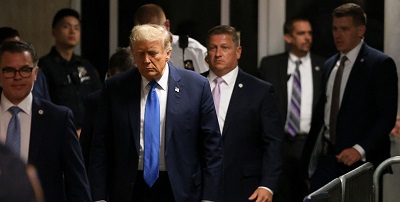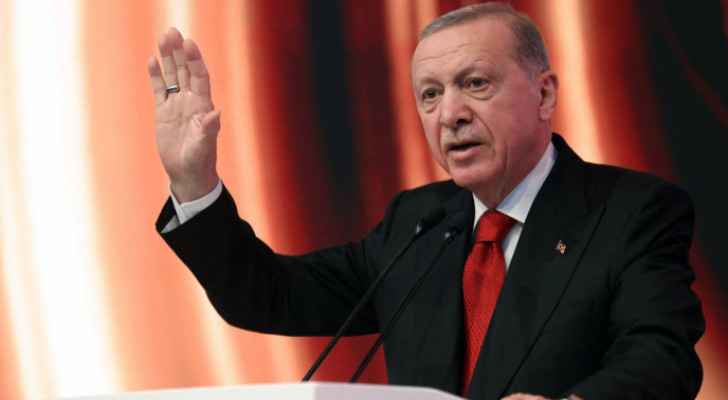The GCC summit in Kuwait survived while Doha didn’t - By Abdulrahman al-Rashed, Asharq Al-Awsat.
Despite the blurred smiles among delegations, the Emir of Qatar could not hide his awkward position when he sat for the first time since the dispute broke out facing the ministers of Saudi Arabia, the United Arab Emirates and Bahrain. It is more than a disagreement. It is outright hostility.
A day before the Kuwait summit, Qatar demonstrated animosity by supporting the Houthis in their war against Yemenis and Saudi Arabia. Yesterday, Qatar supported the killing of former President Ali Abdullah Saleh because he joined the alliance with Saudi Arabia. This is the most bizarre situation in the history of the GCC since its establishment in 1981.
However, as a mark of respect for the Emir of Kuwait, Sheikh Sabah al-Ahmad al-Sabah, the three countries did not boycott the GCC summit in Kuwait even though Qatar violated the council’s charters and overturned its commitments to Riyadh, ironically witnessed by the Emir of Kuwait himself.
ALSO READ: UAE and Saudi Arabia form new alliance covering several fields
The symbolic presence yesterday was a clear message that the summit is the only joint political action between the boycotting countries and Qatar, and may not happen again. The summit survived despite the boycotting of all ties with Qatar and the GCC avoided a total collapse.
Qatar’s continued presence in the GCC, and the four-member summit meeting, in the shortest summit in its history, could send out wrong messages, such as that the dispute has shrunk, which is not true, and that the demands can be overcome, which is also not true.
No justification for reconciliation
The Doha government, which is promoting in its media that the holding of the summit and Qatar’s presence is a victory, strengthens the point of view of the boycotting countries, that Qatar has not changed. It will not change and there is no justification for reconciliation with it, and thus it is the right of these countries to continue their boycott.
Since the beginning of the dispute, the government in Doha has shown no decline in its hostile activities against the four countries: Egypt and the three Gulf states. It is active in Yemen, funding, recruiting, and doing propaganda for the Houthis responsible for bombing and killing of Saudis inside their country.
It is important to understand the picture as it stands. Qatar is a partner in the war and aggression in Yemen, which makes its continuation in the GCC contrary to the foundations on which it was based. Its behavior has grown more conspiratorial as it continues to support anti-Riyadh forces, as well as against the other three countries.
ALSO READ: Jubeir leads Saudi delegation at GCC summit in Kuwait
Qatar’s anti-coalition activity in Yemen will prolong the dispute and may even worsen it. If Doha’s leadership believes that it uses the tactics of the war in Yemen, supported by the enemies of Saudi Arabia, to put pressure on it, it is committing a more serious mistake. It is provoking its adversaries to respond more harshly than just the boycott, which is the only weapon they have used against it so far.
The killing of former Yemeni President Ali Abdullah Saleh is an escalation that will not dissuade the coalition countries from continuing the war, and Yemen’s cleansing of the Houthi militias, the agent of Iran and Qatar. These states consider the alliance with the Houthis similar to the alliance with banned terrorist organizations, such as al-Qaeda and ISIS, which justify prosecuting supporting governments.
Yesterday, the Kuwait summit ended quickly, and Sheikh Sabah succeeded in rescuing the GCC from collapsing. However, even the 50-minute summit almost did not convence because of Doha’s provocative propaganda that preceded the meeting a week ago.
Latest News
 Prosecution lays out ‘criminal conspiracy’ in historic Trump trial
Prosecution lays out ‘criminal conspiracy’ in historic Trump trial King from Madaba: Jordan has always proven its ability to move forward with persistence of Jordanians
King from Madaba: Jordan has always proven its ability to move forward with persistence of Jordanians Safadi discusses war on Gaza with French, German delegations
Safadi discusses war on Gaza with French, German delegations Erdogan arrives in Baghdad for first official visit since 2011
Erdogan arrives in Baghdad for first official visit since 2011 “Israeli” army says it approved plans for “continuation of war in Gaza”
“Israeli” army says it approved plans for “continuation of war in Gaza”
Most Read Articles
- Turkey’s Erdogan in rare Iraq visit to discuss water, oil, security
- Safadi discusses war on Gaza with French, German delegations
- Prosecution lays out ‘criminal conspiracy’ in historic Trump trial
- King from Madaba: Jordan has always proven its ability to move forward with persistence of Jordanians
- Jordan sends 51-truck aid convoy to Gaza
- German envoy for Middle East hails Jordan’s role in Gaza aid
- Jordan applauds Azerbaijan-Armenia border agreement
- FAO organises workshop on ecosystem-based water solutions
- Japan hands over ultrasound equipment to the JNRCS
- US Supreme Court weighs ban on homeless people sleeping outside